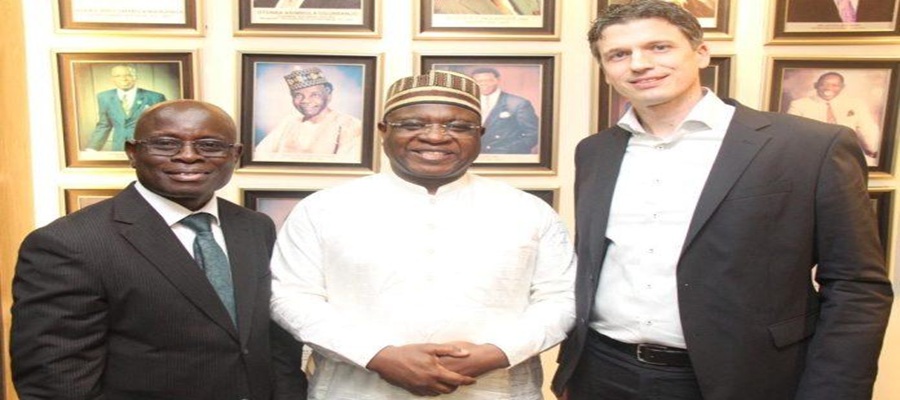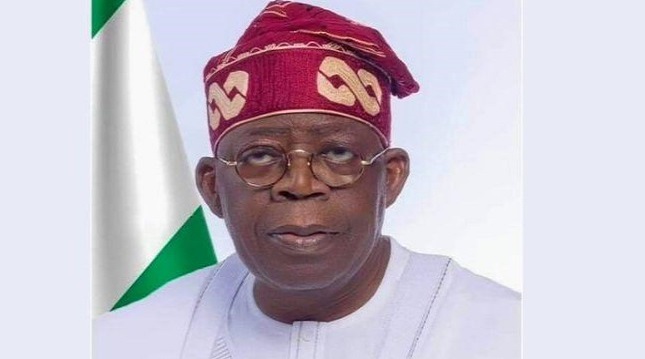News
Mobile Money Taxation Could Hamper Financial Inclusion Gains in Africa

In an increasingly digital economy, accelerated by the Covid-19 pandemic, there has been greater collaboration between the private sector and governments in Africa to further the continent’s digital and financial inclusion agenda.

Financial inclusion, in particular, is both a pre-condition and a key enabler for meeting many of the UN’s Sustainable Development Goals (SDGs), including reducing poverty, boosting economic growth and promoting market access.
To this end various governments, including Kenya and Tanzania, have not only embraced digital transformation but also provided sound and enabling policy frameworks over the years to allow for innovative solutions that empower citizens.
For instance, mobile money platforms such as M-PESA have been vital drivers of financial inclusion on the continent. However, government tax policies pose a significant challenge to the sustainability of mobile money services and financial inclusion gains made by these innovations.
Vodacom Group’s policy paper on Mobile Money Taxation unpacks some of the impact that changes in mobile money taxation has on financial inclusion on the continent.
In the paper, Vodacom Group outlines that accessibility and affordability are two of the major draw cards of mobile money on the continent, giving people access to the most basic financial services.
M-PESA, the first and most successful mobile money payment service on the continent with 52million subscribers, is currently available in Kenya, Tanzania, Lesotho, the DRC, Ghana, and Mozambique with plans to make it available in Ethiopia.
“While many countries have embraced mobile money services, mobile money taxation can have unintended consequences for the people who stand to benefit significantly from these platforms”, says Stephen Chege, Group Chief Officer for Regulatory & External Affairs at Vodacom Group.
“We need to remember that many of the people who use mobile money are highly sensitive to transaction costs, therefore even a marginal increase in the fees associated with using these services could make them unaffordable. Higher transaction taxes may even compel some users to return to cash-based transactions”, notes Chege.
While taxation plays a critical role in helping governments across the continent meet their revenue targets and make up for the economic losses experienced during the pandemic, the policy paper outlines that this could potentially come at the expense of society’s most vulnerable if not appropriately implemented.
Emphasising the importance of considering how taxation could also affect service providers, the paper also suggests that increased taxes could hamper mobile money providers’ ability to make the investments necessary to provide services to the underserved.
“While these taxes are targeting mobile transactions because of their high volume, it is important to remember that the value per transaction is typically quite low. This means that taxation on mobile money transactions is unlikely to significantly expand the tax base and could instead, result in the reduction of tax revenue in the future”, adds Chege.
Where the tax burden is too high, there is a chance that providers will limit their investments, reducing mobile money penetration, leading to lower customer usage on the continent and consequently, the socio-economic benefits derived from these platforms.
Given these realities, the policy paper on Mobile Money Taxation makes the following recommendations:
– Mobile money taxation strategies can be developed in line with long-standing tax principles based on equity. This is essential to ensure that taxation does not exacerbate social divides and that the financial inclusion gains made on the continent are not lost.
– Tax policies can be structured in such a way that they are proportionate and broad-based in their application, rather than sector-specific.
– Governments and regulators can engage more robustly with mobile money operators and telcos on the unintended consequences of mobile money taxation to find a middle ground that is favourable for customers.
“It is common knowledge that the pandemic, the war in Ukraine, and climate change have all hampered Africa’s progress towards meeting the Sustainable Development Goals (SDGs).
“Mobile money plays a critical role in meeting some of these goals by driving financial inclusion and reducing poverty among the unbanked by empowering them to access credit, loans, savings and other essential financial services.
“Without sound and carefully implemented policies around mobile money taxation, we risk reversing the many financial inclusion gains already made on the continent”, concludes Chege.
News
NGX Unveils Net-Zero Plan for Greener Capital Market

Nigerian Exchange Limited (NGX) has launched the NGX Net-Zero Programme to guide listed companies toward clear carbon reduction pathways and enhanced climate disclosures aligned with global investor standards.

NGX
The high-level launch engaged chief executives of quoted firms alongside development partners including German Investment Corporation KfW, DEG, and African Foresight Group (AFG), NGX’s implementation partner. Issuers and investors discussed financing decarbonisation, sustainability practices, and attracting climate-aligned capital.
NGX Group Chairman Dr Umaru Kwairanga described the initiative as concrete climate action, commending partners for two years of groundwork. “Today marks leadership and decisive action. Climate change has become a core business imperative, with capital markets mobilising capital and setting standards,” Kwairanga said.
He positioned NGX Net-Zero to support emissions measurement, disclosure, capacity building, and sustainable finance access, urging CEOs to embrace it strategically rather than as compliance. Kwairanga reaffirmed NGX’s goal to make Nigeria’s capital market Africa’s green finance hub.
Group CEO Temi Popoola called climate action a business imperative, noting sustainability-embedded firms attract capital, manage risks, and stay competitive. DEG Management Board Member Monika Beck highlighted partnerships scaling impactful, commercially viable climate solutions.
The event closed with a ceremonial gong marking the programme launch and send-off for outgoing DEG Regional Director Bernd Telemann.
News
Nigeria Off EU High-Risk Money Laundering List in Major Financial Win

Nigerian Financial Intelligence Unit (NFIU) has hailed Nigeria’s removal from the European Union’s list of high-risk third countries for Anti-Money Laundering and Countering the Financing of Terrorism (AML/CFT) as a landmark achievement endorsing the nation’s reform efforts.

Nigerian Financial Intelligence Unit (NFIU)
NFIU CEO Hafsat Abubakar Bakari said the delisting, contained in European Commission Delegated Regulation (EU) C (2025) 8460 adopted December 4, 2025 and effective January 29, 2026, affirms sustained AML/CFT and Counter Proliferation Financing (CPF) reforms.
The move follows Nigeria’s exit from the FATF Jurisdictions under Increased Monitoring after addressing strategic deficiencies, alongside Burkina Faso, Mali, Mozambique, South Africa and Tanzania.
Bakari noted the European Commission recognised Nigeria’s strengthened AML/CFT effectiveness, closed technical gaps, and fulfilled FATF Action Plan commitments leading to grey list removal in June and October 2025.
The delisting eliminates enhanced due diligence requirements for EU financial transactions, easing compliance, boosting cross-border flows, and enhancing Nigeria’s appeal for European trade, investment and partnerships.
The NFIU attributed success to President Bola Ahmed Tinubu’s political will and collaboration among National Assembly, law enforcement, regulators, judiciary, private sector and development partners.
The agency reaffirmed commitment to ongoing FATF, GIABA, EU engagement and domestic framework resilience to maintain international confidence in Nigeria’s financial system.
News
FG Directs Banks, Fintechs to Remit VAT on Service Fees

The Federal Government has directed all banks and fintechs to collect and remit 7.5 per cent value-added tax on certain electronic banking services, effective Monday, January 19, 2026, according to an email notice issued by payment platforms.

The VAT will apply to electronic banking charges, including mobile money transfers, USSD transaction fees, and card issuance fees, according to an email notice on Wednesday shared with customers by Moniepoint.
For example, if a bank charges N100 to make a transfer, the 7.5 per cent VAT will be applied to that service fee, not the money being sent.
“From Monday, January 19, 2026, we are required to collect a 7.5 per cent VAT, to be remitted to the Nigerian Revenue Service (formerly known as the Federal Inland Revenue Service).
“VAT will apply to certain banking services that include electronic banking charges such as mobile banking fees (transfers), USSD transaction fees, and card issuance fees,” the email read.
Other operators are expected to issue similar notices to their customers in the coming days. Services that will remain exempt include interest earned on deposits and savings, meaning customers will not pay tax on the returns from their accounts.
The NRS, formerly known as the Federal Inland Revenue Service, has set the deadline to ensure that all commercial banks, microfinance banks, and electronic money operators comply with the collection and remittance requirement.
Moniepoint stressed that this is not a price increase but a statutory obligation. “Moniepoint is required to collect and remit VAT to the Nigerian Revenue Service,” the company said in a statement.
The move is part of the government’s broader efforts to standardise VAT collection on digital financial services and expand revenue generation amid Nigeria’s growing digital economy. VAT on banking transactions is not entirely new; the NRS is now enforcing uniform collection rules across all platforms, ensuring compliance across the sector.
Customers have been assured that the new tax will be clearly itemised, with the VAT shown separately on transaction statements and reports.
In December, several commercial banks informed customers that the N50 stamp duty would be deducted on electronic transfers of N10,000 and above, following the commencement of provisions of the new Tax Act.
The charge, previously known as the EMTL, has now been formally reclassified as stamp duty and will be applied as a one-off fee on qualifying electronic transfers.

 E-Financial3 days ago
E-Financial3 days agoPaystack Expands Beyond Payments into Banking

 E-Financial3 days ago
E-Financial3 days agoSEC Partners Police in Nationwide Crackdown on Ponzi Schemes, Crypto Frauds

 General News3 days ago
General News3 days agoEFCC to Use Space Technology to Boost Asset Tracking, Investigations

 E-Business3 days ago
E-Business3 days agoNigeria Targeted with 4,622 Cyber-attacks Per Week in December 2025

 E-Financial3 days ago
E-Financial3 days agoFG Halts Tax Guidelines Amid Uncertainty Over Final Laws – Oyedele

 E-Financial3 days ago
E-Financial3 days agoPaystack Buys Microfinance Bank, Enters Nigeria Banking Arena

 News3 days ago
News3 days agoFG Directs Banks, Fintechs to Remit VAT on Service Fees

 E-Financial2 days ago
E-Financial2 days agoSEC Hikes Minimum Capital Requirements for Market Operators After a Decade


























